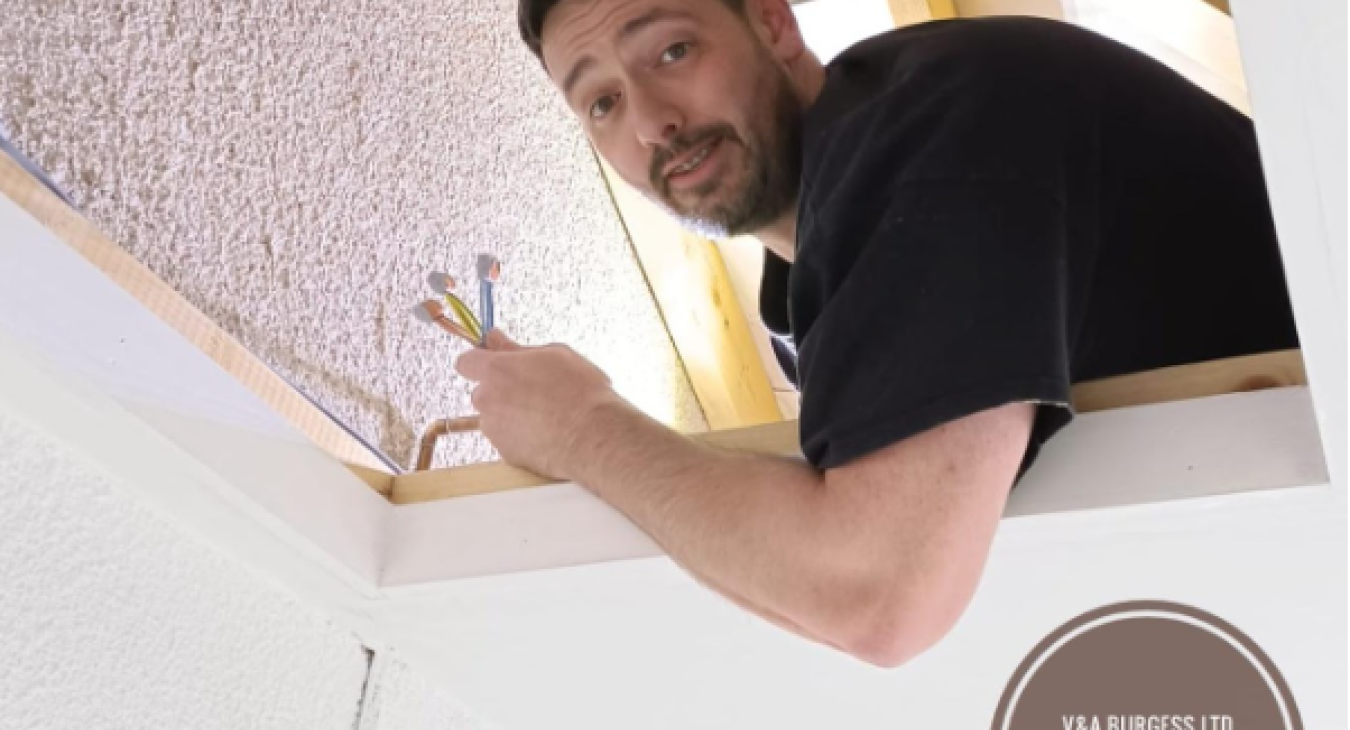What tools are essential for electricians to use? - Electrical Faults Fixed
Working as an electrician, especially on a self-employed basis can involve a million dollar or million-pound tool kit, or at least, that's what it feels like at times. The truth is, there are many tools that are vital, many that are really useful and those that are not essential but can make jobs easier on occasion when the need is called for.
What tools do electricians use? We will look at what I consider to be the essential tools for electrical work, the proper tools for each situation and maybe some handy ones for tight spaces.
Essential tools
Approved voltage indicators
The most essential tool for determining if a circuit is safe to work on. An approved voltage indicator along with a proving unit is the best way of working safely on electrical circuits.
Multifunction Tester
All professional electricians will have electrical test equipment as part of their tools. It’s impossible to safely carry out electrical work without the right electrical testers or multifunction tester. I have always preferred the Kewtech brand owning and using several of their testers personally. The multifunction tester is an indispensable tool and is also very useful for an apprentice to being learning on.
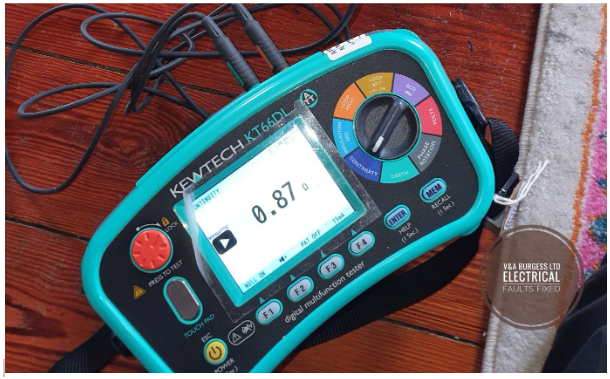
(KEWTECH KT66 DL)
One of the best small electrical testers for an apprentice or electrician is the Kewtech KT63DL. This will carry out most functions with the exception of the three phase works that may be needed.
Small Claw Hammer
Claw hammers are available in all sorts of different sizes but a small claw hammer of around 6 inches is fantastic for clipping cables in tight spaces such as the attic. Basic tools like this are vital to electrical installation works as larger claw hammers are too difficult to swing in such small spaces. The small claw hammer is a very versatile tool for persuading difficult things to go to places where they should!
VDE Screwdrivers
Whilst electrical work should really only be carried out on dead circuits which have been proved dead suing the right test equipment, VDE screwdrivers will allow work to be carried out where the supply cannot be made dead or where mistakes have been made. There is no end to the various sizes that are required and I have found the best option with VDE screwdrivers is to buy a large roll up mat type set from WERA or WIHA. These sets contain a multitude of different types and sizes that can be used in all sorts of electrical wiring situations.
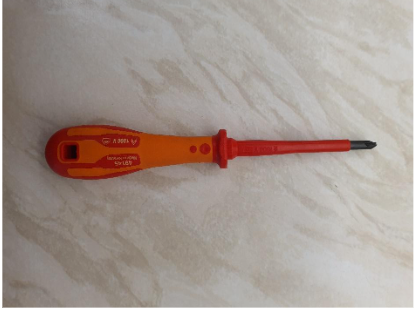
Wire Cutters
VDE cable cutters are an essential tool for cutting wires and removing insulation from different sized conductors. There are different lengths and types of cable cutters including those that have semicircular cut out holes for stripping common wire sizes. I have not seen a set in the USA that have this capability but if you find then message me! The UK has a set that can strip the insulation from 1.5mm and 2.5mm cabling.
The longer the wire cutters or side cutters the easier it is to cut cables as there is more mechanical advantage over the cutting end of the tool. They do become somewhat difficult to handle after 200mm or 8 inches long though. I prefer the C.K 180mm side cutters with integral insulation stripping as they are a great quality tool that performs several functions. I also have a cheaper pair of wire cutters for general works that I do not care greatly about.
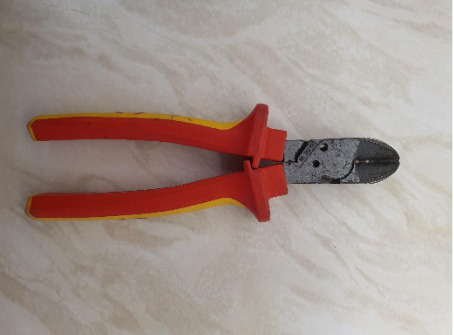
Utility Knife
A normal utility knife such as the STANLEY knife is a must for all sorts of general works. There is a VDE electricians’ knife but, in all honesty, I virtually never use mine. I prefer to cut electrical wires with side cutters and wire strippers. The STANLEY knife is great for cutting around light switches and socket outlets where a homeowner has painted 42 layers of different paint over the top throughout the years or papered incorrectly up to them when decorating.
The knife is also useful for opening virtually everything, even boxes that say not to use a knife to open (we all do it don't we?)
Electrical Tape
What tools do electricians use? Well, whilst not strictly a tool, electrical tape is brilliant for everything. Cut your finger open with a STANLEY knife (once a week normally) then wrap some electrical tape around it so you can keep working. Band aids are obviously the best but who has one all the time?
Electrical tape is also handy for identifying cables when rewiring, taping wires up out of the way whilst working on electrical systems and tying cables on to a fish tape to pull cabling through cavities.
Cordless drill
I honestly do not know how anyone can manage without a cordless drill and impact driver these days. These tools are used almost every day to drill holes, chisel out solid walls for the installation of electrical boxes and cables. I exclusively use DEWALT tools which I have found to be incredibly reliable over the years. Their impact drivers are fantastic and I actually have spares in case one breaks down (a rarity).
The 18-volt sds hammer drill has managed to carry out every task I have thrown at it with ease and has never let me down yet (touch wood). A good power drill is essential to carrying out work quickly and getting the job finished. There is little more frustrating than having to leave the job site to fetch tools, consumables, or other materials for a job. It’s far easier to have everything on the van and spare parts that may be needed than losing time to go and fetch stuff.
Needle nose pliers
Needle nose pliers are really useful for moving wires out of the way in an electrical panel, grabbing wires that have been pulled in using cable rods or a fish tape and for general electrical use. VDE pliers are essential as there is always a chance that live wires could be accidentally touched.
Side cutting pliers
General side cutting pliers are useful for a variety of electrical and non-electrical works. As an apprentice electrician, a good pair of side-cutting pliers should last a good few years, that is until you accidentally cut through live wires blowing a hole in them but hopefully not yourself. I speak from experience of course, there has been the odd 'accident' which has resulted in the untimely demise of a pair of side cutters.
Really Useful Tools
Non-contact voltage testers
A non-contact voltage tester can be occasionally useful to determine if cables or equipment 'may' be live. I find the tool most useful for identifying which circuit is which but then will always use an approved voltage indicator to see if electrical components, electrical installations, or cables are safe to work on. Whilst non-contact voltage indicators have their place, they are not always 100% accurate for detecting the presence of voltage.
Wire Strippers
A good set of automatic wire strippers can save bundles of time when there are several cables to strip or where downlight installation is required. It’s a bit lazy I will be honest but they are such a great timesaver that I think they should be given their credit.
I use the C.K ones although I have used cheap eBay sourced wire strippers before and they are nowhere near as effective and reliable.
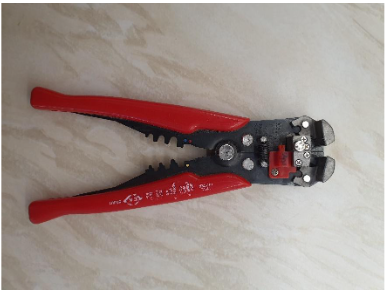
Clamp meter
A clamp meter is used to encapsulate a cable and determine the magnitude of electrical current that is flowing in the cable. It’s not always a vital tool but can be a really useful tool. Sometimes you want to know if a cable is being overloaded, to determine if an appliance is pulling the correct current or other uses. An earth leakage clamp meter is really useful when finding the cause of a GFCI or RCD tripping.
An earth leakage clamp meter is set up to measure miniscule electrical currents. Such electrical currents would be present where current is leaking to earth in amounts too small to trip a standard circuit breaker.
Flat head screwdriver
Whilst we touched on VDE screwdrivers earlier in the article, there is no better must-have tool than a sacrificial old flat-head screwdriver. This does not even have to be a VDE screwdriver. The reason for this is that they make excellent pry bars, chisels, and general destruction tools for tight spaces. I am actually serious. I do have sympathy for old flat head screwdrivers but they are very useful for a variety of applications and are inexpensive to replace when they inevitably break.
Bull nose pliers
A good set of bull nose pliers can be used to rip stuff apart, squeeze stuff together and yank stuff around. They are one of the most important tools in the really useful tools section. I regularly use a set of bull nose pliers to straighten out electrical conductors that have become bent, rip out old back boxes and for grabbing electrical cables.
Non-Essential Tools
Low voltage battery screwdriver
This could possibly be in the essential section to be fair. For anybody that carries out second fixing on rewires, regular electrical inspections or fault finding works. The BOSCH go screwdriver is absolutely fantastic for unscrewing and re-screwing electrical accessories. Whilst it is not VDE rated it is brilliant for saving tennis elbow and repetitive strain injury on the wrist, hands, and forearm. Yes, I know, I am delicate ok. This thing screws stuff up quicker than anyone could with a hand screwdriver, saves piles of time and the battery lasts for absolutely ages!
Bent Needle Nose Pliers
I accept that not everyone will see these as useful until they have tried to grab cables in the back of an electrical panel or consumer unit. These bad boys can be inserted into a rat’s nest of cabling and reach around the back to grab the cable that you need without the aggro and infuriation of having to undo several terminations to reach the wiring that you need. They are really useful again for inspection and testing purposes and can save time, sweat and tears.
They are not the cheapest tool out there but once you have all the others you may just find them as useful as I do.
Ferrule Crimping Tool
There are occasions when a stranded cable needs to have a solid end in order to be inserted into a screw terminal. This prevents wires from becoming ‘chewed up’, frayed and generally difficult to handle. When the need arises, a ferrule crimping tool is the best choice. There are some very expensive brands on the market exceeding $200 but they are not necessary in my experience.
I have used a set from Amazon that were about a tenth of that price and they have not failed yet, crimp brilliantly and come with their own carry case!
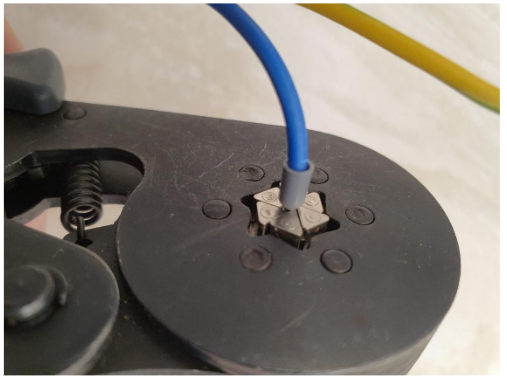
Summary
When considering what tools do electricians use? there are many different tools that are great for daily tasks as an electrician. One tool may be invaluable to me but not so useful to another person. A good variety of tools is the best way of solving electrical problems and the right hand tools can outweigh the usefulness of many power tools when electrical jobs demand them. The best electrician tools are those that YOU will use on a regular basis and may be different to mine.
Insulated handles on tools will minimise the risk of electrical shock and other potential hazards. The most important tool could actually be considered the right tool bag though. I use a C.K Magma technicians tool bag as I tend to carry out cleaner works that don't warrant an open tool tote style bag.
Whatever your needs for working on an electrical circuit, I hope that my experience has helped in this article and that you have some insight whether you are just starting out or considering buying new tools as a master electrician.
Read more articles
- Log in to post comments

